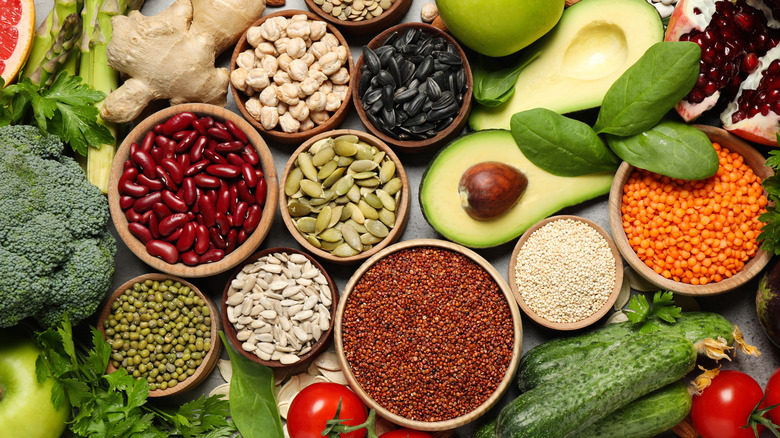The Real Reason Canada Is Having A Major Vegetable Shortage
At the end of 2021, it looked like a perfect storm was brewing that had the potential to impact Canada's food industry on a large scale. CTV News reported that supply chain issues like port congestion and the extraordinarily high price of shipping containers might translate into rising food prices and possible shortages across the country. Staffing issues and panic buying only made the situation worse. In particular, port issues caused some of the most dire problems for fruit and vegetable distributors. Normally, produce might sit on boats for 15 days, but now, cargo remained onboard for upwards of 60 days. Distributors then faced the issue of getting this less-than-fresh food to markets as quickly as possible.
By December 2021, things weren't looking much better. According to Global News, food prices across Canada started to be affected by the highest inflation in prices that the country had faced in over a decade (Canada also has a steep carbon tax that drove prices higher). At the end of the year, experts predicted up to a 7% increase in the price of vegetables. Now, Canada has another factor that promises to worsen the crisis and, this time, it's coming from the U.S.
Worsening conditions for Canada's produce market are related to vaccinations
As if things weren't already bad enough, Canada's vegetable market may get stretched even thinner soon due to supply chain issues stemming from America. Bloomberg reports that Canadian border guards have started turning away American truck drivers that are unvaccinated. A Canadian mandate that went into effect on January 15 requires all international truck drivers to have received vaccination against COVID-19, but as of now, only about half of all American truckers meet this qualification. As a result, Canada has faced issues sourcing fruits and vegetables, as it relies on the U.S. for upwards of 90% of these foods during the winter months. The new law has created rippling effects and caused truckloads of produce to sit in storage in warehouses.
The mandate has also exacerbated workforce issues and raised the price of international shipping in general. Lettuce has already seen a price increase of 12 Canadian cents since the mandate started. The new law also has the potential to bleed into dairy shipment disruptions between the two countries, while a similar mandate in the U.S. takes effect on January 22, per Bloomberg. Between both laws, 16,000 drivers might be prevented from delivering shipments between both countries. For now, the future looks bleak for the Canadian vegetable market, and anyone looking to get their hands on some produce in the Great White North should plan to pay a bit more.

